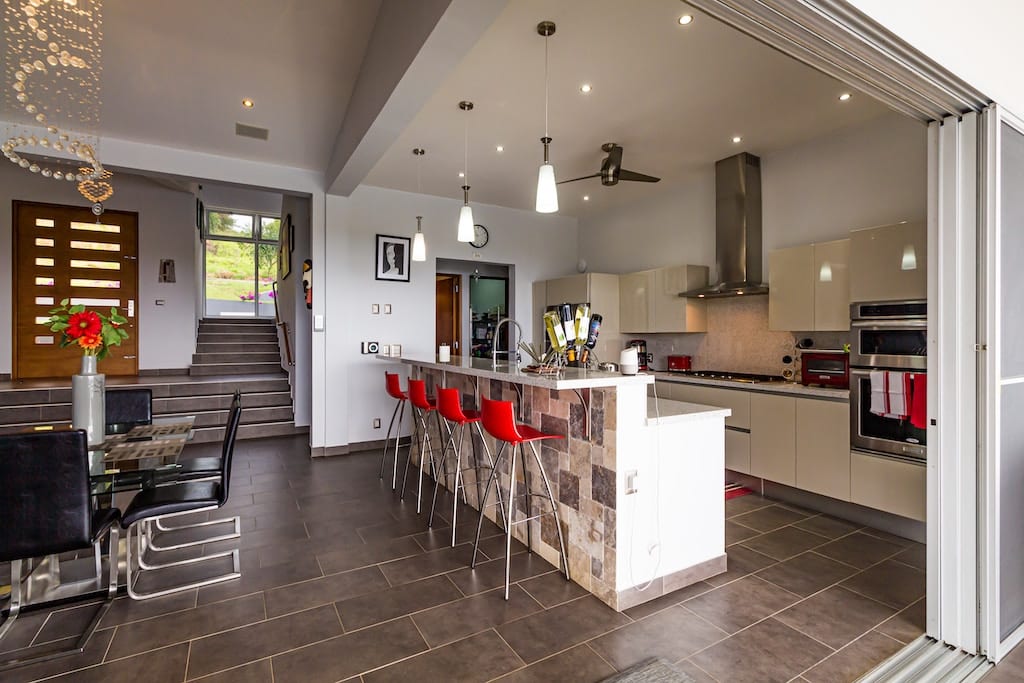When it comes to boilers, knowing the difference between one boiler and the next and, which is right for your type of property could save you time, hassle and a lot of money. We explain the most common boilers in use in the UK.
What is the best boiler?
That’s a great question. The answer is the best boiler is one that suits the size of your property and your water and heating consumption.
By law every new boiler that’s installed in the UK must be a condensing, i.e. the water vapour produced during the combustion process should condense back into liquid form to release latent heat. Here are the most popular boilers in Great Britain:
Combi boilers
Combi boilers (or combination boilers) work by heating water directly and instantly from your mains so there’s no need for a hot water storage unit.
These qualities mean they are both energy-efficient and compact in size and therefore, ideal for smaller properties.
Combi boilers are some of the most popular boilers in the UK and their name comes from the fact that “combis” combine both control of your hot water and central heating.
Pros
- Space-friendly if you have limited space
- Instant hot water 24/7
- Cheaper installation and maintenance.
Cons
- May not be suitable for homes with more than one shower
- No back-up water supply if the boiler breaks down
- Power showers may not be compatible with combi boilers.
System boilers
System, closed-vent or sealed system boilers are the ideal choice if you have a home with more than one bathroom.
System boilers heat cold water directly from the mains supply via a heat exchanger.
The heated water is then pumped into a hot water cylinder where it is stored. This makes supplying multiple taps (i.e. bathrooms, kitchen etc) at home with hot water all at once possible.
Pros
- Most heating system components such as the expansion vessel and pump are built into a system boiler meaning it saves on space
- Hot water is available around the clock
- Compatible with solar thermal systems
Cons
- If you don’t have sufficient space, finding a home for the hot water cylinder could prove difficult. An airing cupboard would be the ideal spot for your cylinder
- Space and cylinder size will affect how much water you’re able to use
- The cylinder will need insulating to prevent energy (heat) loss
Conventional boilers
Conventional boilers are also called regular, heat-only, open vent or traditional boilers. A conventional boiler requires a cold water storage tank to feed the hot water cylinder.
Conventional boilers also work with a tank to maintain your central heating’s water level. Once the fuel, either gas or oil, is fired-up, it powers a heat exchanger.
The exchanger warms up the water and a pump transports it to a hot water storage tank where it stays until needed.
Pros
- Ideal for areas with low water pressure
- Can support multiple bathrooms
- Easy to install in homes with older heating systems
- Compatible with solar panels
Cons
- Needs to work with multiple parts so, therefore, takes up a lot of space
- Hot water can run out
- Complicated and expensive to install in modern buildings
Once you've decided on a boiler, make sure to read our guide to find out whether you need boiler cover.
Switch your energy supplier
A new boiler will help to reduce your heating bills, but don't forget to shop around for the best deal. Compare energy now and see how much you could save.
Compare gas and electricity deals
We monitor the market and automatically switch you to better deals for free.
